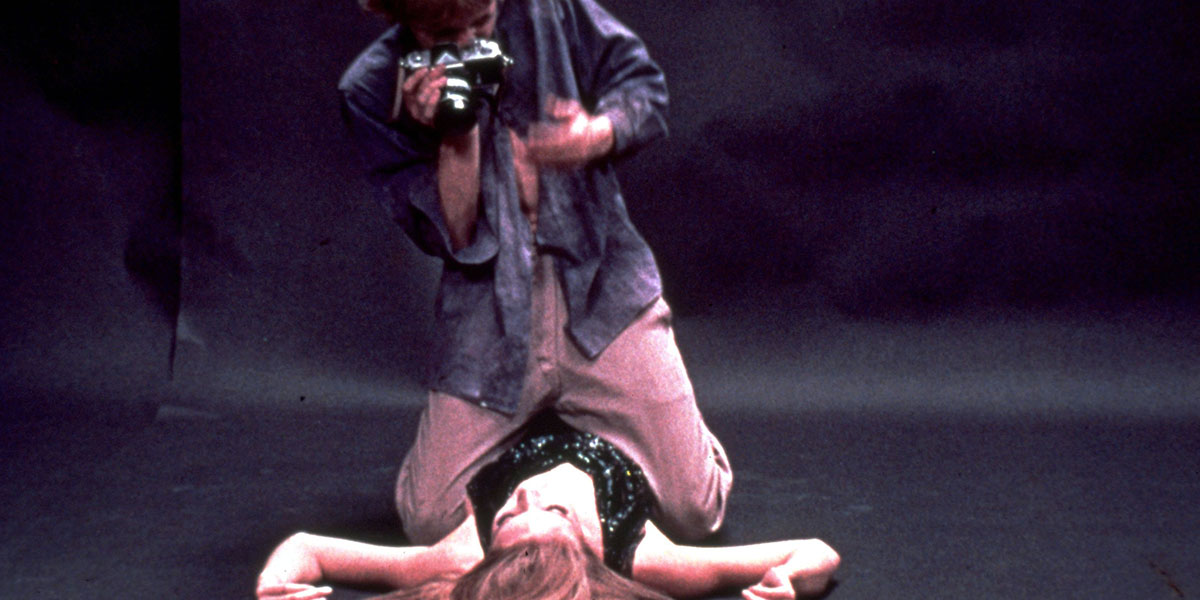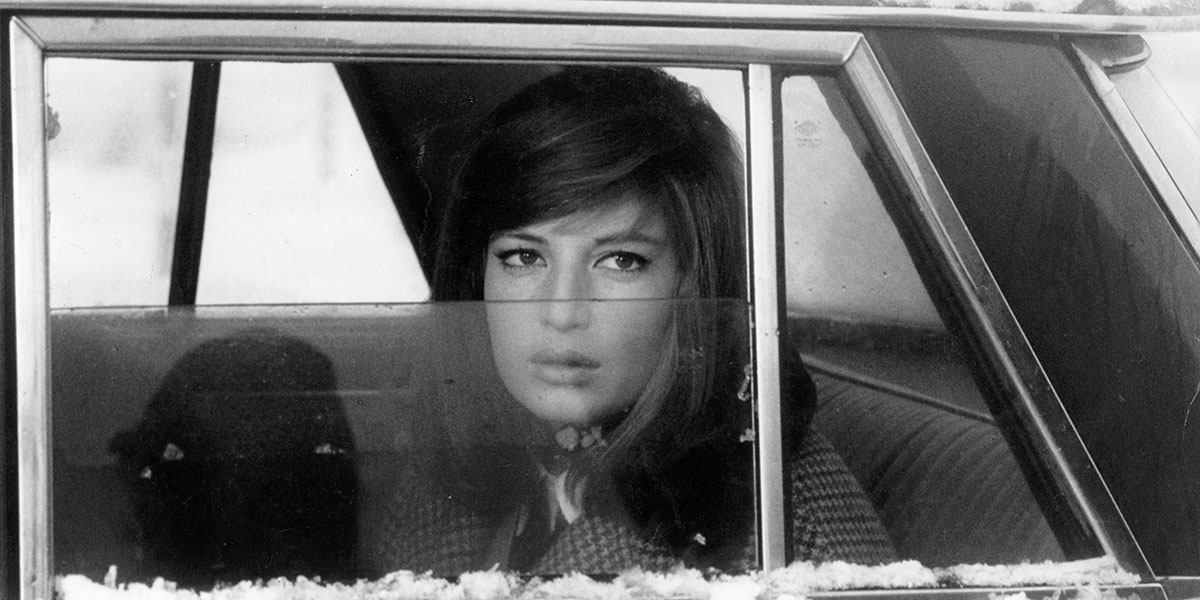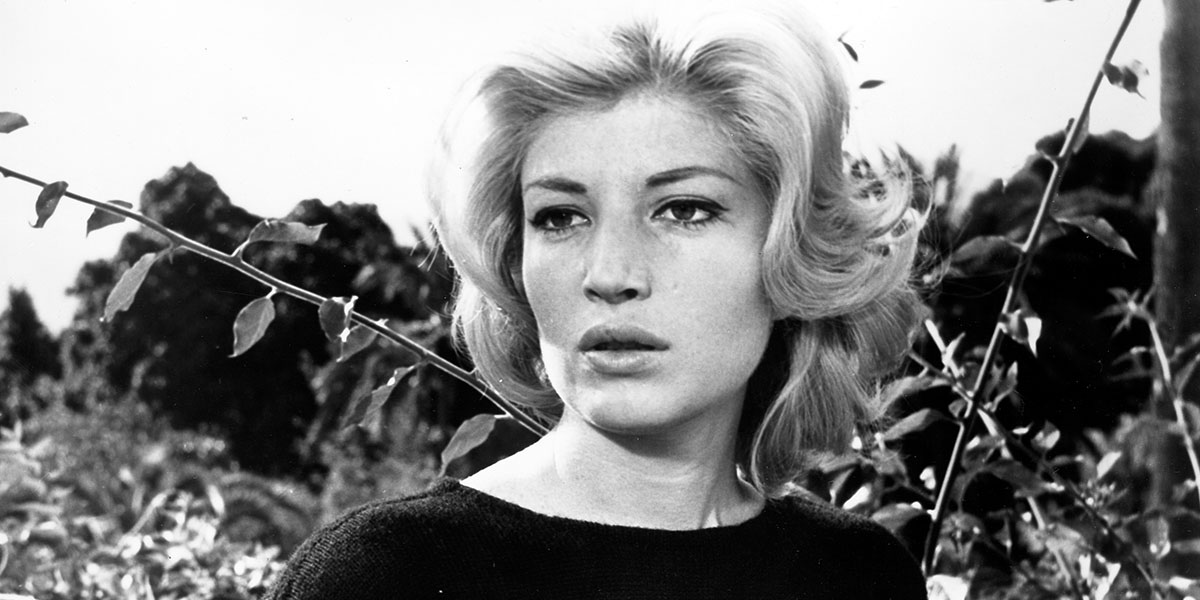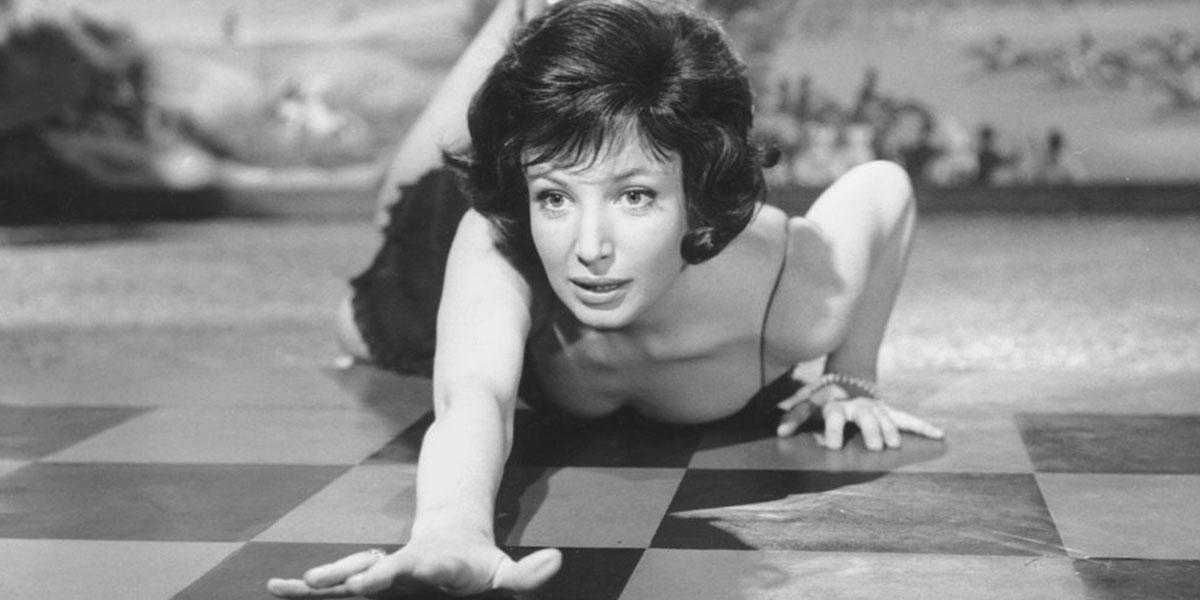TIFF: Modernist Master: Michelangelo Antonioni TIFF Cinematheque Retrospective - A Look At Four Films On The Programme
Michelangelo Antonioni (1912 – 2007), was an Italian film director best known for his "trilogy on modernity and its discontents" - L'Avventura (1960), La Notte (1961), and L'Eclisse (1962), as well as the English-language Blow-Up (1966). Antonioni "redefined the concept of narrative cinema" and challenged traditional approaches to storytelling, realism, drama, and the world at large. He produced "enigmatic and intricate mood pieces" and rejected action in favor of contemplation, focusing on image and design over character and story. His films defined a "cinema of possibilities".
This Summer, TIFF invites audiences to explore some of this modern master's filmography. The programme runs from June 6th to July 21st and features a collection of features and short films from his storied career.
These are four of the films set to play in the programme

Blow-Up (1966)
This restoration yields the first English film by Michelangelo Antonioni and is set in London in the Sixties. Sounds groovy, does it not? I thought so, but sadly I could not find the reputed mastery in this film. It literally drags us along on a day in the life of Thomas (David Hemmings), an apathetic fashion photographer, bored with his life among beautiful models swooning over his attentions. While looking for something more stimulating to photograph, Thomas discovers two lovers in a public park on an apparent affair excursion, and finds the forbidden nature of their meeting irresistible.
However, he is quickly pursued by the woman who insists on getting back the photographs from him. When Thomas blows up the pictures during development, his examination reveals a deeper motive for the woman’s insistence that the pictures not be revealed. He becomes obsessed with a possible murder that the pictures betray and we accompany him on his quest to find the truth.
Although the technical aspects of the film are good, there is little else to commend Antonioni on. Hemmings’ character is positively annoying to watch as he frolics senselessly in his immature eccentricity while we wait for anything – anything – to happen. If Antonioni wished to depict the photographer’s boredom effectively by forcing his viewers to suffer the same, he is successful. A mediocre effort by the otherwise wonderful Vanessa Redgrave does little to alleviate the tediousness of this way-too-long film.
-Tasha Danzig

Red Desert (1964)
An exquisite commentary on desolation and emotional abandonment, RED DESERT has spellbinding scenery, dystopian and pallid as it is for prime effect. A portent of looming ecological disaster, the industrial overtones callously present greed and the carelessness it breeds. In a parallel stroke, it scrutinizes the disturbed nature of the erratic heroine, Giuliana, who suffers some undisclosed disorder following a car accident.
Splendidly played by Monica Vitti once more, Giuliana’s character’s vague and disconnected interaction with her husband and son is striking, effectively jabbing at the passive aggressive deviation from affection she nurtures toward her life. This dissociation and indecision on her part inadvertently sparks a brief affair with one of her husband’s colleagues.
Working in colour for the first time with this film, Antonioni overwhelms with imagery, metaphor and landscapes. Breathtakingly miserable scenery consisting of factories, pollution of already bland skies and desolate desert sand establishes the narrative with genius ability and this brings home the messages Antonioni wishes to impress on the viewer. RED DESERT feels decidedly empty and dystopian, on point for the importance of its atmosphere and symbolism.
-Tasha Danzig

This black & white delivery is yet another film that is dawdling relentlessly, despite its myriad of metaphors about the fickle nature of loyalty and love that run throughout the film. It is the general consensus that L’AVVENTURA (The Adventure) is about an hour too long and does not possess enough substance to merit such a long runtime.
The premise is intriguing enough. Anna, a rich young woman played by Léa Massari, mysteriously disappears during a yachting trip with some friends. This trip to a Sicilian island includes her lover, Sandro (Gabriele Ferzetti) and her best friend, Claudia (Monica Vitti). When she goes missing, the obligatory search for her brings together her lover and her best friend as Sandro and Claudia travel through Sicily in search of her. Gradually, finding Anna becomes mostly a smokescreen for their sexual attraction.
Antonioni imparts the loose nature of sentiments that concern how easy it is to replace love with lust or love and sheds light on the the emotional dance of defiance between people and their objects of obsession. Anna’s disappearance comes almost as a test, as a ruse to get attention, but perhaps she really is missing. The locations are beautiful and the story layered, but it is simply too long for the average viewer to enjoy.
-Tasha Danzig

Michelangelo Antonioni's central film in a trilogy about modern devastation; La Notte, is an essential film for any viewer who is eager to understand the complex foundations of modern cinema. The horrors of reality are often far more disturbing than supernatural terrors and La Notte's moody walkabout through a day in the life of a dying marriage explores the pitfall of dissatisfaction with a candidness that remains with the viewer long after the credits roll. This is a film about two people who have it all and yet, underneath their wealth and social decadence is a void that cannot be filled. While the subject matter has been explored countless time, there is, simply put, no one like Antonioni.
What makes La Notte such an important piece of cinematic history is in its presentation. Eschewing any sense of traditional action and storytelling, the story is presented as a crumbling snapshot, giving way underneath decades of marital distress. A quiet storm, La Notte is an experience more than a traditional film featuring a pair of potent performances and a series of remarkably staged set pieces. The price of fame and wealth are often unseen casualties of domestic bliss and Antonioni's unparalleled command of the medium elevates the simplicity of the material to the heavens.
-Kyle Jonathan




